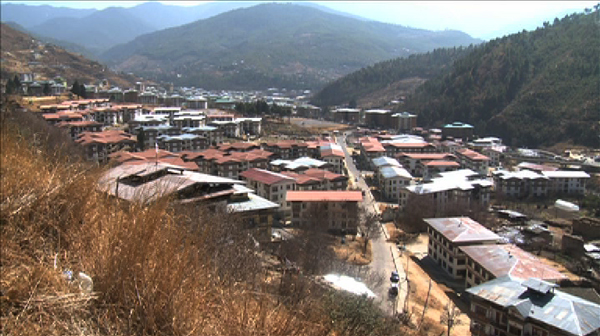
Finding a house is a quite a task in major towns like Thimphu and Phuentshogling, more so if you are looking for decent but affordable housing.
Dozens of new building constructions come up almost every day in Thimphu but the demand for housing, or rather affordable housing, continue to outstrip supply.
On Facebook, hardly a day passes without posts of at least 10 people desperately looking for a house.
A solution to the problem is in sight, or so does it seem, going by the campaign pledges.
Both Druk Nyamrup Tshogpa (DNT) and Druk Phuensum Tshogpa (DPT) promise to provide affordable housing to the low-income groups if they come to power.
The DNT pledges to build 2,500 flats for ownership.
“The problem of not having a house is more prominent in the urban centres. So, our plan is to construct houses in the towns and rent it out to them so they can own the house after 30 or 60 years,” DNT’s Vice President Tandi Dorji said.
“And our focus is on those coming from the disadvantaged background. We are not offering them houses for free. Instead, they will be paying rent, which will recover the government’s investments.”
DPT’s housing pledge is no less attractive. The party wants to encourage and facilitate home ownership through the introduction of special home loan schemes.
“There are over a thousand people who don’t own house or land in Thimphu. We will begin with Thimphu. We will build buildings and sell flats to those who don’t have a house,” Lily Wangchuk, DPT’s Vice President said.
“When we say sell, it’s not with profit-making motive. We will calculate the cost of the land and building and then sell. For instance, if the building is worth two million, we will sell at the same rate to them but they won’t be paying all at once. They will pay Nu 8000 per month in rent and within 20 years they can own the house. So, this plan will benefit the people while not incurring any loss on the government.”
A study published by the Centre for Bhutan Studies (CBS) some four years ago says more homes are being built but most of them are beyond the means of low-income groups.
The same study cites a 1999 study according to which Thimphu requires 780 more dwelling units every year. But Thimphu has not seen any housing colony come up after the one in Changjiji.
The shortage of affordable housing gave birth to a new housing trend over the years as people opted for what is known as co-living or shared housing.
According to a 2010 National Council study, cited in the CBS study, 16 per cent of Bhutan’s urban population was neither homeowner nor tenant but living with family and friend as of 2007.
If DNT and DPT live up to their promises, average Bhutanese families can look forward to living their dream of owning a house







